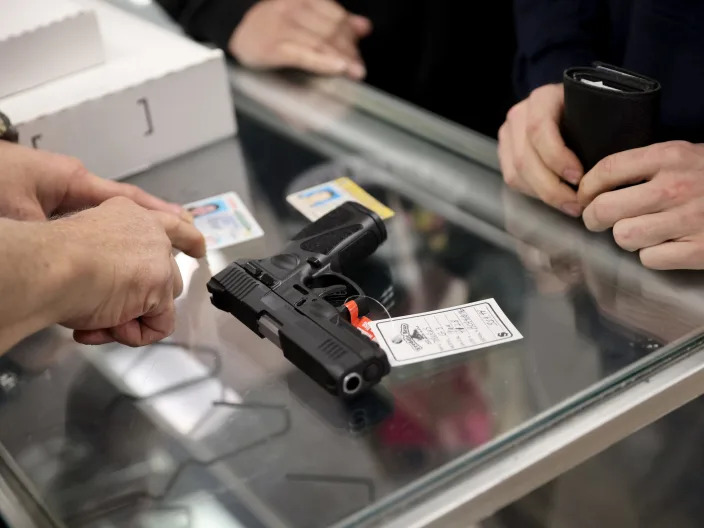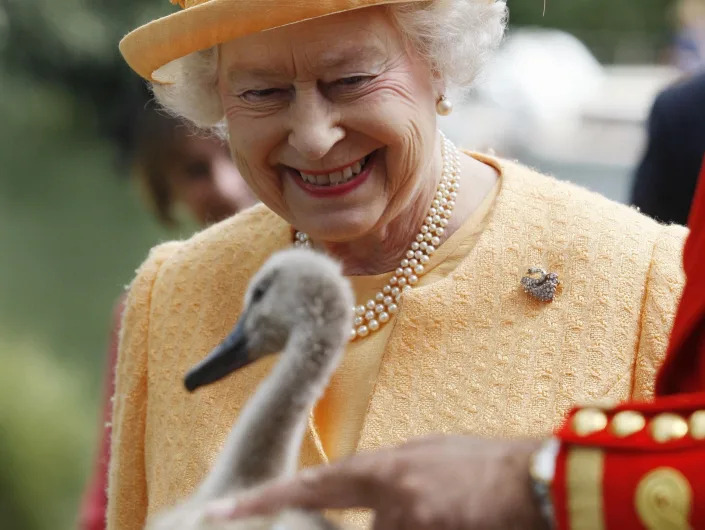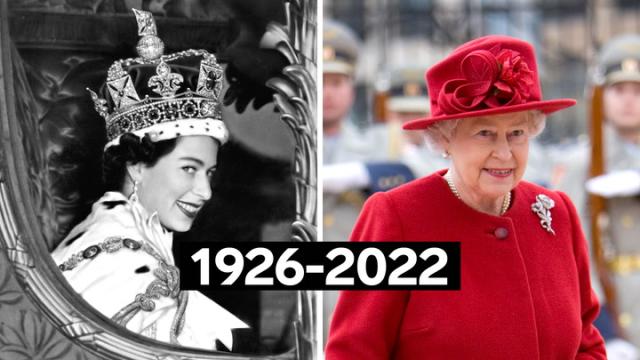In a win for gun control advocates, Visa, Mastercard, and American Express plan to start separately categorizing sales at gun stores
Isabella Zavaris
Sat, September 10, 2022

Visa, Mastercard and American Express will separately categorize sales at gun shops.
The decision is a win for gun control advocates who say it will help track gun sales.
Until Friday, gun store sales were considered general merchandise.
Visa, Mastercard, and American Express will separately categorize purchases at gun shops in a win for gun control advocates who say the decision will help alert law enforcement to potentially illegal firearm sales.
According to The Associated Press, the payment processors announced the change on Saturday, after the International Organization for Standardization, a Geneva-based nonprofit, approved the creation of a merchant code for gun retailers.
Until Friday, gun store sales did not have a unique code and were considered "general merchandise," according to a spokeswoman for the ISO.
"Following ISO's decision to establish a new merchant category code, Visa will proceed with next steps, while ensuring we protect all legal commerce on the Visa network in accordance with our long-standing rules," the company said in a statement to Insider.
AmericanExpress said it will work with its third-party processors and partners to implement the new merchant category codes.
"It is important to note that MCC codes are one of many data points that help us understand the industries in which our merchants operate," the company said in a statement.
Reuters reported the ISO was influenced by gun control advocates, including US Senator Elizabeth Warren, w\ho urged the CEOs of Mastercard, American Express, and Visa to make the change.
"Mass shooters have repeatedly financed deadly massacres using credit cards, and bank CEOs need to step up to save lives," Warren said.
In a statement to Insider, Mastercard said: "We understand and appreciate the significant policy imperative in reducing gun violence and see the recent bipartisan action in Congress as a positive step. We believe it is that type of effort that will meaningfully address the tragic gun violence facing the country."
The AP reported gun rights advocates argue that tracking gun sales unfairly targets legal gun purchases.
Lars Dalseide a spokesman for the National Rifle Association told Insider that the ISO's decision to create a firearm specific code is "nothing more than a capitulation to anti-gun politicians and activists bent on eroding the rights of law-abiding Americans one transaction at a time. This is not about tracking or prevention or any virtuous motivation – it's about creating a national registry of gun owners."
Sen. Warren did not respond to Insider's request for comment
NRA slams credit card company code to track purchases at US gun shops, claiming it's 'creating a national registry of gun owners'

Visa, MasterCard, and American Express will categorize the purchase of firearms in US shops.
Gun control activists support the move, while the NRA is calling it an attempt to create a national database of gun owners.
The International Organization for Standardization approved the creation of the new code on Friday.
Visa, MasterCard, and American Express will use a new code for gun shop purchases in US stores in a win for gun control advocates that has angered the NRA.
The merchant category codes are four-digit numbers used to classify businesses, indicating the types of services or goods being sold, according to Investopedia. The merchant code does not affect the gun purchase itself, but would allow for more transparency.
Gun-control activists say the new code will help track large or suspicious weapons purchases, while gun rights advocates argue that the new code is unfair to those buying firearms legally since it tracks the type of merchant — stigmatizing all gun shop purchases — not the actual items purchased, Mint reported.
"The ISO's decision to create a firearm specific code is nothing more than a capitulation to anti-gun politicians and activists bent on eroding the rights of law-abiding Americans one transaction at a time," a spokesman for the National Rifle Association said in a statement Sunday.
"This is not about tracking or prevention or any virtuous motivation — it's about creating a national registry of gun owners," the spokesman continued.
The payment giants' decision follows the approval on Friday of the new merchant code by the International Organization for Standardization, a group of standards bodies from more than 160 countries.
Reuters and other outlets first reported the news.
The new code will apply to all purchases at gun and ammunition stores, though gun sales at other types of retailers won't be captured separately, Bloomberg reported.
Following the news, New York City Comptroller Brad Lander said the move would help financial institutions flag suspicious activity at these stores and help save lives.
Visa, the world's largest payment processor, acknowledged the change in a statement Saturday, and said it would "protect all legal commerce on the Visa network in accordance with our long-standing rules."
MasterCard announced Friday that it would protect customers' privacy while focusing on "how it will be implemented by merchants and their banks as we continue to support lawful purchases on our network," per Reuters.
Meanwhile, American Express also said in a statement that it will meet regulations and work to "prevent illegal activity on our network," according to Bloomberg.










